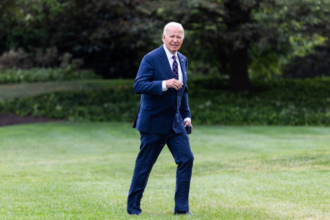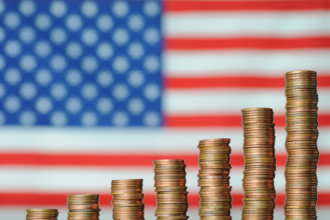The contest for the White House is dead, with just one Day left before Election Day. Polls show a deadlock at the national level and in the crucial battleground states that can decide the result. The contenders, Donald Trump and Kamala Harris, are in a close run and fighting for the favor of undecided voters.
- How Can Trump Capitalize on Economic Discontent to Secure Victory?
- What Emotional Issues Could Influence the Election: Trump vs. Harris?
- How is Harris Positioning Herself as a Stabilizing Force?
- What Impact Will Abortion Rights Have on the Election's Outcome?
- How Will Financial Resources and Advertising Power Affect the Tight Race?
Experts remark that the polls are so close, within the margin of error, that either candidate could be two or three points better off—enough to win comfortably.
How Can Trump Capitalize on Economic Discontent to Secure Victory?
Trump’s plan depends on his ability to relate to those worried about the economy. “The number one issue for voters is the state of the economy,” adds one political observer. Many Americans feel the strain of growing prices despite low unemployment and a roaring stock market.
“Inflation has reached levels not seen since the 1970s; Trump can use this situation by asking voters, ‘Are you better off now than you were four years ago?'” the expert says. Trump wants to profit from the post-COVID cost-of-living crisis since voters all across have shown a propensity to remove the current party from power during economic difficulty.
According to current polls, two-thirds of Americans have a negative view of the economy’s state, while only 25% are happy with its path. This unhappiness presents Trump with a perfect chance, as Trump has kept consistent support at 40% or higher despite many legal battles.
A GOP strategist notes, “Many Republicans view Trump as a victim of a political witch-hunt even with the fallout from the January 6th Capitol riot and his subsequent indictments.” If he is to guarantee triumph, Trump has to appeal to the tiny group of undecided voters who still have mixed opinions on his character.
What Emotional Issues Could Influence the Election: Trump vs. Harris?
Elections historically have been influenced by emotionally charged subjects. While Trump is emphasizing immigration, abortion rights are the priority for Democrats. Polls show that voters believe Trump more on immigration issues and that he has made notable inroads with Latino voters compared to past elections as border encounters under the Biden presidency reach historic levels.
A political observer notes, “Trump’s appeal rests in his ability to relate to voters who feel forgotten.” His policies, emphasizing American business protection through tariffs, have effectively turned conventional Democratic demographics, including union workers, into Republican voters.
Should Trump raise turnout in swing state rural and suburban areas, it might help to counterbalance his losses among moderate, college-educated Republicans. Critics counter that his strategy cozies up to authoritarian leaders, therefore undermining global alliances. On the other hand, Trump claims, “No major wars started during my presidency,” highlighting his erratic nature as a benefit.
Many Americans see a diminished America under Biden’s leadership and are annoyed with his significant financial support of Israel and Ukraine. Many voters—especially guys who have interacted with Trump via podcasts like Joe Rogan’s—see him as a better leader than Harris.
How is Harris Positioning Herself as a Stabilizing Force?
On the other hand, Harris’s approach mainly relies on becoming a workable substitute for Trump. Her admirers sometimes say, “She’s not Trump.” Trump has benefits but still divides people; Harris is using this to her advantage.
A Democratic strategist notes: “Trump won a record number of votes for a Republican candidate during the 2020 election, but he was finally defeated because seven million more Americans rallied behind Biden.” This time, Harris is stressing the possible risks of a Trump comeback and calling him a “fascist,” so endangering democracy.
According to recent polls, four out of five Americans believe the nation is sliding out of control. Harris wants this message to appeal to moderate Republicans and independents, establishing her as a candidate of consistency amid uncertainty.
Biden’s exit from the contest brought Democrats together swiftly around Harris, who has sent a forward-looking and inspirational message energizing the party base. “Harris has rendered some of the attacks against her obsolete,” adds a campaign strategist.
Age has been a crucial point of attack; although Americans worried about Biden’s fit for office, Trump is now fighting to be the oldest person to occupy the presidency.
What Impact Will Abortion Rights Have on the Election's Outcome?
Since the US Supreme Court reversed Roe v. Wade, therefore eradicating the constitutional right to an abortion, this election marks the first presidential contest. An election analyst notes that those voters worried about abortion rights mostly back Harris. Particularly in the midterms in 2022, the issue has shown to be a strong turnout motivator in past elections.
With ten states—including swing state Arizona—ready to challenge abortion laws by ballot campaigns, Harris stands to gain from more voter participation. Her historic attempt to be the first female president further enhances her appeal, especially to women voters.
Studies show that Harris’s target audience—such as those with college degrees and older voters—tends to vote more often. A political scientist notes, “Democrats historically perform better with high-turnout groups; Trump’s increased support among lower-turnout groups like young men and those without college degrees contrasts this.”
A New York Times/Siena poll shows that Trump has a significant advantage over registered voters who did not vote in 2020. The critical question is still: Will these people show up this time?
How Will Financial Resources and Advertising Power Affect the Tight Race?
American elections are getting more expensive as the 2024 election cycle rolls on; this year’s campaign is projected to be the most expensive ever. However, Harris seems to have the upper hand in spending money and fundraising.
According to a recent Financial Times investigation, Harris has raised more since July than Trump had during the whole year since January 2023. Moreover, it emphasizes how almost twice in advertising her campaign has invested as opposed to Trump.
In a closely contested race, especially in swing states bombarded with political propaganda, the money resources and advertising methods could be vital. “In the end, the people living in those crucial battlefields will decide this election,” a political consultant says.
The result is still unknown as Election Day approaches, as both candidates are ready to profit from American citizens’ feelings and worries.








